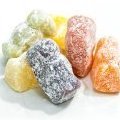Swimming pool
-
Recently Browsing 0 members
- No registered users viewing this page.
-
Topics
-
-
Popular Contributors
-
-
Latest posts...
-
80
Report Cannabis Advocates to Rally July 7 Against Recriminalisation Plans
Not according to Nancy Reagan just once and you are addicted or so she claimed when launching the "War on drugs" hows that working out by the way? -
10
Looks like Xi is finished
Leftists usually decide the discussion here and its always trump. If China had a civil war today the thread about it would be crickets -
40
Poll If war breaks out with Cambodia what will you do?
If anything happened anywhere, I’d just stay out the way , or in a case like the last coup in Myanmar, leave at once. I’m not that person who joins in the chaos . -
80
Report Cannabis Advocates to Rally July 7 Against Recriminalisation Plans
Please don't try to educate me, I am educated enough thanks, I have Dr in front of my name (and not the PhD type) your constant justification argument is like a rapist saying "but at least I am not a pedophile" and yes there is a connection to smoking cigarettes and then later weed, it involves the same action, inhaling smoke into your lungs not quite understanding as to your banal connection between Pepsi and alcohol, why not water, milkshakes? to put it bluntly to educate me, first educate yourself and now go smoke some more weed and chill out, apparently it makes people all warm, cuddly and happy -
6
BBC in Trouble again.
Just another Bob full of $hit and just as interesting🤔 -
4,315
LTR Visa is Now available for Long Term Residency
I would like to ask some questions regarding the latest policy application on the LTR visa: 1) From when does the tax benefit of non-taxation of foreign remittances start for people already previously in Thailand on a different visa or no visa? The benefit is given for the entire calendar year in which the LTR visa was obtained, pro-rata to the time of the LTR visa or how? 2) For the wealthy pensioner visa what is the latest appetite of the BOI for income from capital gains? They take this into account or not? Some time ago, they did not like this very much. 3) And for how many years does the BOI now require this income for wealthy pensioners, one year or two? 4) What happens if the applicant cannot provide income tax statements since his or her circumstances where such that no income tax declaration was due (e.g. due to previous non-taxation of various foreign remittances, tax residence in a tax-free place etc.)? Thank you.
-
-
Popular in The Pub




.thumb.jpeg.d2d19a66404642fd9ff62d6262fd153e.jpeg)







Recommended Posts
Create an account or sign in to comment
You need to be a member in order to leave a comment
Create an account
Sign up for a new account in our community. It's easy!
Register a new accountSign in
Already have an account? Sign in here.
Sign In Now